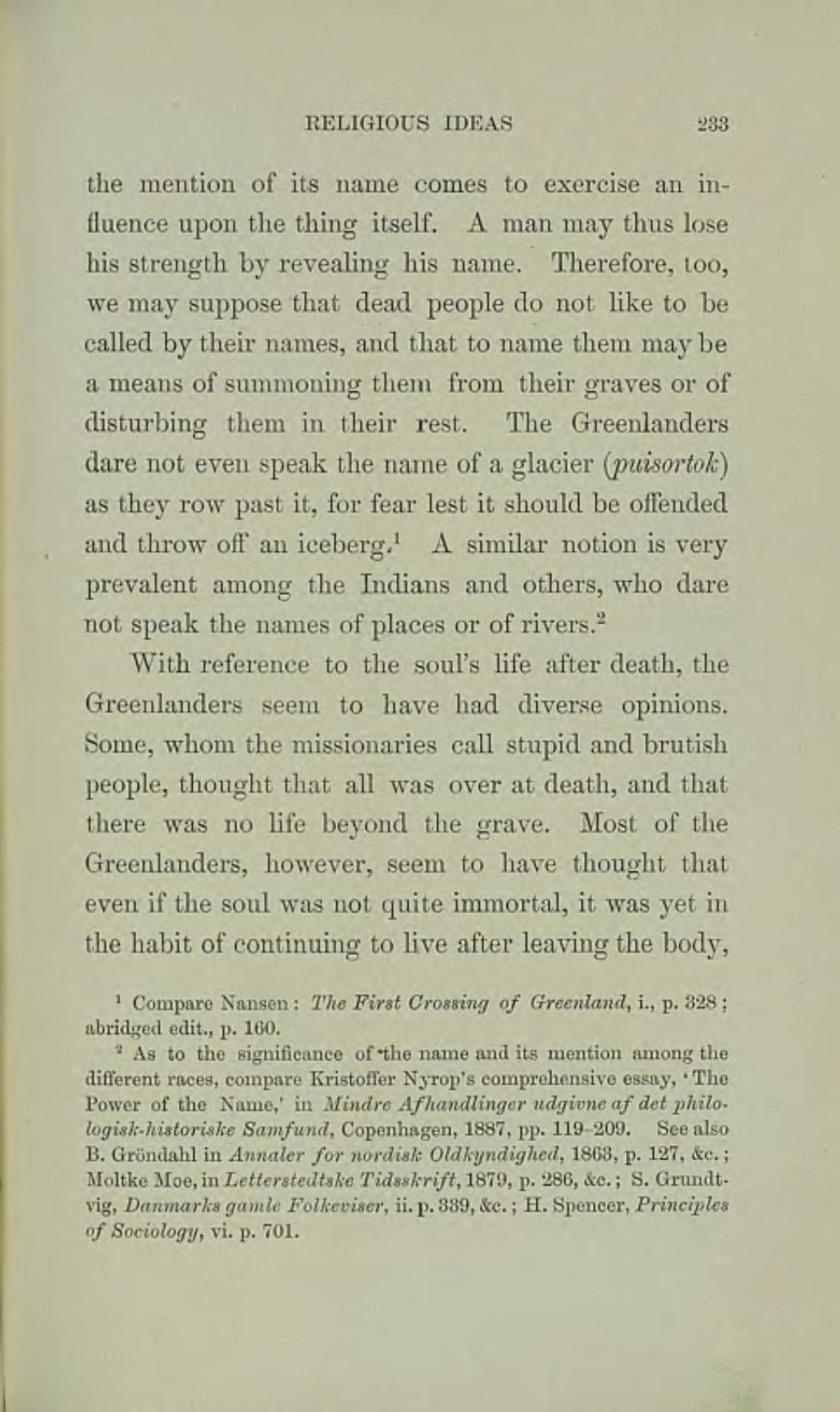the mention of its name comes to exercise an influence upon the thing itself. A man may thus lose his strength by revealing his name. Therefore, too, we may suppose that dead people do not like to be called by their names, and that to name them may be a means of summoning them from their graves or of disturbing them in their rest. The Greenlanders dare not even speak the name of a glacier (puisortok) as they row past it, for fear lest it should be offended and throw off an iceberg.[1] A similar notion is very prevalent among the Indians and others, who dare not speak the names of places or of rivers.[2]
With reference to the soul's life after death, the Greenlanders seem to have had diverse opinions. Some, whom the missionaries call stupid and brutish people, thought that all was over at death, and that there was no life beyond the grave. Most of the Greenlanders, however, seem to have thought that even if the soul was not quite immortal, it was yet in the habit of continuing to live after leaving the body,
- ↑ Compare Nansen: The First Crossing of Greenland, i., p. 328; abridged edit., p. 160.
- ↑ As to the significance of the name and its mention among the different races, compare Kristoffer Nyrop's comprehensive essay, 'The Power of the Name,' in Mindre Afliandlinger udgivne af det philologisk-historiske Samfund, Copenhagen, 1887, pp. 119-209. See also B. Gröndahl in Annaler for nordisk Oldkyndighed, 1863, p. 127, &c.; Moltke Moe, in Letterstedtske Tidsskri, 1879, p. 286, &c.; S. Grundtvig, Danmarks gamle Folkeviser, ii. p. 339, &c.; H. Spencer, Principles of Sociology, vi. p. 701.
